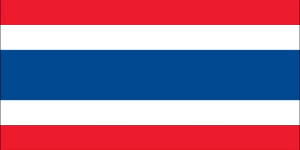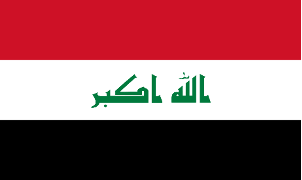November 7, 2020
Dear friends,
CANVAS is pleased to bring you another weekly report! This report covers the state of the U.S. presidential election, new scandals in Zimbabwe, and natural disasters in Nicaragua and Indonesia.
Coronavirus [UPDATE]
London researchers have discovered that certain antibodies created by the human body whilst fighting the common cold may target the COVID-19 virus and offer some protection against the strain. Over the past week, both Italy and France have hit new daily coronavirus infection highs of 37,809 and 60,486, respectively. On Friday, northern Denmark went into another lockdown as the transmission of a mutated strain of the coronavirus between minks and humans is being investigated. This has led to a nationwide order to kill millions of the animals. Additionally, the president of Portugal has declared a COVID-19 state of emergency that will go into effect next week, strongly recommending that people stay home in order to help lift some of the pressure on the country’s overwhelmed healthcare system. Aspirin is being tested as a treatment for the coronavirus in a UK-based study. The International Monetary Fund has approved a 370 million USD coronavirus aid loan for Afghanistan, which is already struggling from violent conflict.
Conflict Update
Over 50,000 Bangladeshis protested and demanded a boycott on French goods this week after President Emmanuel Macron defended criticism of Islam as an exercise of freedom of speech.
Fears of a civil war in Ethiopia have grown following a crisis of legitimacy resulting from September’s elections and a military offensive in Tigray.
Four were killed and 24 were wounded in Vienna on Monday when a 20-year-old man opened fire on a popular nightlife district. The Islamic State claimed responsibility for the attack, and the shooter was killed by the police.

Bolivia
On Thursday, conservative opposition leaders called a two-day strike, claiming election fraud in last month’s elections despite the validation of the election results by multiple intergovernmental organizations, such as the Organization of American States. Luis Arce, the victor of October’s election, will be sworn in on Sunday despite the tensions. Following the Movement Towards Socialism Party’s return to the presidency last month, former president Evo Morales of Bolivia will return from his exile in Argentina next week.

United States of America
Amidst a slow ballot count, allegations of voter fraud and the fear of a non-peaceful transfer of power, the United States has maintained an air of tension following the country’s election day on November 3rd between current president Donald Trump and challenger Joe Biden. Biden has effectively been declared the winner. Trump has attempted to pursue multiple lawsuits that, if successful, could change the outcome of the election; however, these efforts appear to be fruitless as there has not been any legitimate evidence of voter fraud.

Indonesia
Without much fanfare, Indonesian president Joko Widodo signed a divisive omnibus bill into law on Monday night, disregarding the mass protests demanding the revocation of the bill taking place in the country throughout the past few weeks. Activists worry the bill will have a negative impact on the working class and the environment, as it has stripped regulations that previously protected related issues. Indonesian authorities have begun to evacuate residents near Mount Merapi, an active volcano that the Yogyakarta’s Volcanology and Geological Hazard Mitigation Center warns may erupt soon. During its last eruption, over 350 people were killed and nearly 20,000 people living in the area were evacuated.

Thailand
In a continuation of anti-monarchy protests that have persisted in the country since this summer, thousands of Thai protestors marched towards the German embassy in Bangkok, demanding the German government investigate the king’s multiple stays in Germany in recent months. Protestors have also begun to adopt celestial imagery during demonstrations, challenging symbolism that has traditionally been reserved for the monarchy.

Belarus
As nationwide protests and strikes continue in Belarus, the contested regime faces more and more international scrutiny: the EU is “expected to approve” new sanctions on members of President Lukashenko’s government this week, and Belarus’ human rights record drew massive criticism at their Universal Periodic Review at the Human Rights Council. At the same time, Lukashenko closed many of his nation’s land borders, acting on a threat he had been making for weeks. The most notable protest of this past week was a demonstration involving over 200 disabled Belarusians. Several of them were detained during their march in Minsk.

Sudan
The U.S. Secretary of State announced this week that he had begun to officially push the United Nations to end sanctions that it placed on Sudan back in 2005 following the Darfur conflict. Despite this, President Trump renewed a 23-year-old “state of emergency” declaration on Sudan, saying that the country continues “to pose an unusual and extraordinary threat to the national security and foreign policy of the U.S.” Meanwhile, three-way talks among Egypt, Ethiopia and Sudan over the contested Grand Ethiopia Renaissance Dam ended on Wednesday without any new progress.

Iraq
Iraq’s president and parliament passed a law allowing for early elections in 2021 under new rules intended to increase competitiveness, such as the division of each province into multiple electoral districts. This came days after the country’s security forces used bulldozers to clear out Baghdad’s Tahrir Square, a key landmark in the year-long anti-government protest movement where demonstrators were still staging a sit-in. In other news, one of Prime Minister Mustafa Al-Kadhimi’s advisers was arrested this week on corruption charges.

Hong Kong
Residents of Hong Kong can now anonymously submit photo, audio, and video files to a new police hotline that aims to gather information on violations of the national security law. A Human Rights Watch researcher has criticized the service, claiming that people could abuse the hotline by reporting “people who they dislike or are in a different political camp.” Meanwhile, the judicial system continues to hand down punishments for those who act against the current government. Pro-democracy activist Chan King-hei will go to jail for two years after doxxing three police officers as part of what the judge called a “deterrent sentence.” Around the same time, reporter Bao Choy Yuk-ling was arrested on charges related to a TV program she co-produced about last year’s controversial Yuen Long incident, drawing outrage from multiple journalism groups.

Zimbabwe
Prominent journalist Hopewell Chin’ono has been arrested once again for violating the conditions of his bail. When he was released back in September, the court ordered him to stop using his Twitter account; in response, he created a new account on the platform where he writes about corruption and other critiques of the government. Separately, there have been new developments in last week’s gold-smuggling scandal: the mining official caught with 14 gold bars claimed she “picked up the wrong handbag,” and her colleague claims that President Mnangagwa’s wife and son are major players in the smuggling ring.

Nicaragua
On Tuesday night, Nicaragua was devastated by Category 4 storm Hurricane Eta. At least three people have died as a result of the hurricane that caused mudslides, flooded rivers, and ripped homes apart. Over 10,000 have been huddled in close quarters in storm shelters, despite the risk that it poses for COVID-19 transmission in a country already struggling with the pandemic. In the wake of this destruction, Nicaraguans have pleaded with the international community for humanitarian aid.

China
The only major economy to grow in the historic year, Chinese president Xi Jinping announced the country is expected to import nearly $22 trillion worth of goods over the next ten years, advocating for free trade. On Tuesday, Nepali opposition leaders accused China of seizing territory on the border of the two countries in the Himalayan mountains, a claim that both the Nepali and Chinese governments have denied. An Indian military commander has commented on tension in the Himalayas on the Indian-Chinese border, voicing concerns a months-long standoff could become a larger conflict in the near future.

Iran
The foreign ministers of Iran and Cuba met in Havana this week in order to show solidarity with each other in the face of American sanctions against both countries. The Iranian foreign minister traveled Havana after a visit in Venezuela, another country also currently facing American sanctions. Grand Ayatollah Khamenei of Iran mocked the U.S. elections in a tweet earlier this week, calling it a “spectacle” and saying the elections show the true nature of American democracy.